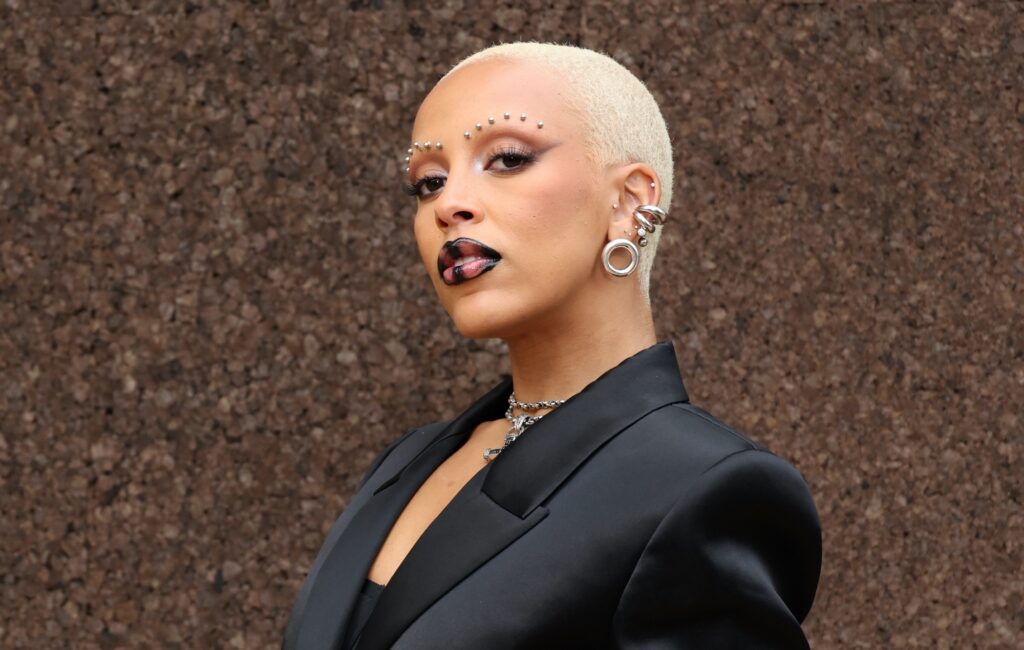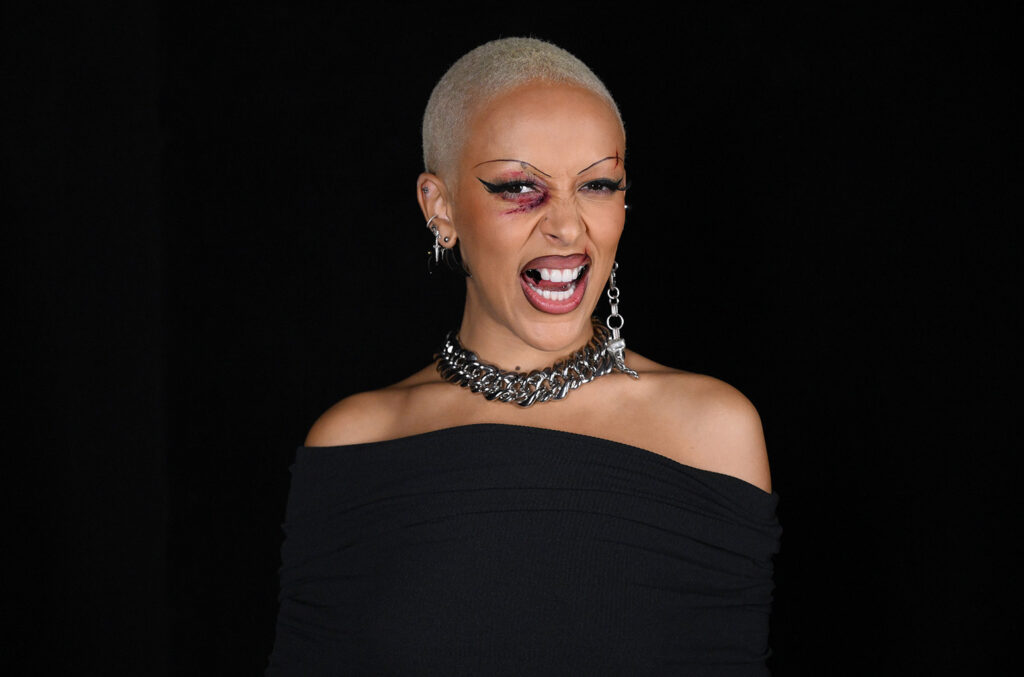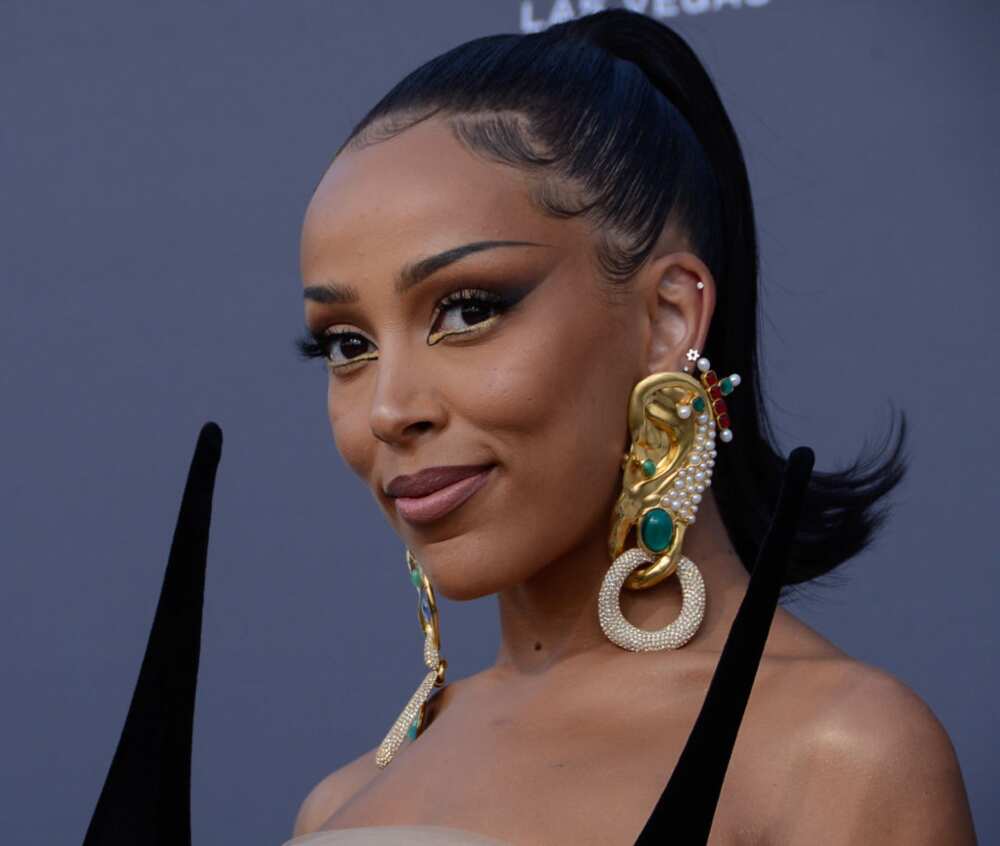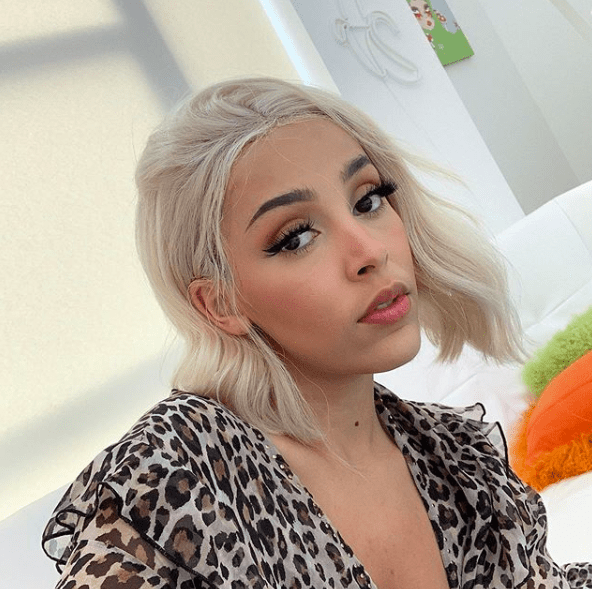Are you curious about the racial identity of the intriguing artist known as Doja Cat? Well, in this article, we will explore the question, “Is Doja Cat Black?” With her unique mix of genres and captivating personality, Doja Cat has gained widespread popularity, leaving fans wondering about her ethnicity. Join us as we unveil the truth behind Doja Cat’s heritage in this friendly exploration of her racial background.
Doja Cat: An Overview
Doja Cat has quickly risen to fame in the music industry, captivating audiences with her unique style and versatile talent. In this comprehensive article, we will delve into various aspects of her journey, including her background, musical style, ethnic heritage, and her impact on racial equality. Whether you’re a long-time fan or just getting to know her, this article will provide a comprehensive overview of Doja Cat’s life and career.
Background and Rise to fame
Born on October 21, 1995, in Los Angeles, California, Amala Ratna Zandile Dlamini, popularly known as Doja Cat, burst onto the music scene with her extraordinary blend of genres, captivating lyrics, and mesmerizing visual aesthetics. With a unique ability to effortlessly traverse between rap, R&B, pop, and even elements of reggae, Doja Cat captivates audiences with her infectious energy and bold creativity.
Doja Cat gained significant attention in 2018 with her viral hit “Mooo!”, a comedic rap song that showcased her knack for tongue-in-cheek lyrics and catchy melodies. The music video, featuring her dressed as a cow and complete with humorous animations, quickly went viral and amassed millions of views on social media platforms. This unexpected breakthrough paved the way for her subsequent success and cemented her name in the music industry.
Doja Cat’s Real Name and Origin of Stage Name
Although widely known by her stage name, it is worth noting that Doja Cat’s real name is Amala Ratna Zandile Dlamini. The name “Doja Cat” is said to have originated from two sources. Doja” refers to marijuana, which she used to smoke frequently during her early years, and “Cat” was chosen simply because she loves cats. The combination of these two elements resulted in the unique and memorable stage name that has become synonymous with her artistry.
Musical Style and Influences
When it comes to musical style, Doja Cat defies categorization. She skillfully blends elements of hip-hop, R&B, pop, and even hints of reggae and electronic music to create her unique sound. Drawing inspiration from a diverse array of artists such as Nicki Minaj, Erykah Badu, and Aaliyah, Doja Cat has developed a style that seamlessly fuses genres, allowing her to stand out as an innovative and distinctive artist in the music industry.
With her debut album “Amala” released in 2018, followed by the critically acclaimed “Hot Pink” in 2019, Doja Cat has proven her versatility as a songwriter and performer. From introspective ballads to high-energy anthems, each song showcases her range and undeniable talent. Her ability to effortlessly switch between singing and rapping, combined with her clever wordplay and infectious melodies, has garnered her a dedicated fan base and critical acclaim alike.
Doja Cat’s Ethnicity and Heritage
Doja Cat’s South African-Jewish Descent
Doja Cat’s ethnicity is a unique blend of South African and Jewish heritage, which has played an influential role in shaping her identity and musical style. Her father, Dumisani Dlamini, is a South African actor, composer, and film producer, while her mother, Deborah Elizabeth Sawyer, is a Jewish-American painter. This multicultural background undoubtedly contributes to the richness and diversity found in her artistic expression.
Early Life in Malibu, California
Raised in Malibu, California, Doja Cat’s upbringing was marked by a blend of cultures and influences. Growing up in a multiracial household, she was exposed to various traditions, languages, and cuisines from South Africa and Jewish culture. This exposure to different cultures provided Doja Cat with a unique perspective on the world, fostering her innate creativity and ultimately shaping her artistic vision.
Influence of South African and Jewish Culture in Her Life
Doja Cat’s South African and Jewish heritage deeply influenced her upbringing and continues to shape her personal and professional life. From the traditional South African music and rhythms she was exposed to growing up to the Jewish customs and celebrations observed within her family, the richness of these cultures is evident in her music and overall aesthetic.
Through her music, Doja Cat often incorporates elements of traditional South African rhythms, infusing her songs with an undeniable energy and vibrancy. Additionally, her experiences growing up with Jewish traditions have contributed to her openness and embrace of diversity, evident in her lyrics and exploration of different musical genres.

Doja Cat and Racial Identity
Her Self-Identification and Public Image
Doja Cat’s racial identity has been a topic of conversation and speculation throughout her career. As a multiracial artist with South African and Jewish heritage, she has proudly embraced her mixed identity. In numerous interviews and social media posts, Doja Cat has expressed her appreciation for her diverse background, emphasizing the importance of embracing one’s uniqueness and celebrating diversity.
Addressing Questions About Her Racial Heritage
Given the complexities surrounding racial identity, Doja Cat has faced questions and scrutiny regarding her heritage. In response to such inquiries, she has consistently displayed grace and openness, acknowledging her mixed background and encouraging others to respect and accept the diversity that exists within individuals.
Despite occasional controversies and misunderstandings surrounding her racial identity, Doja Cat actively works towards fostering inclusivity and unity through her music and public image. By confidently embracing her heritage and encouraging others to do the same, she has become a role model for those navigating the complexities of racial identity.
Doja Cat’s Relationship with the Black Community
Her Interaction with Fans and Critics on Social Media
As a prominent figure in the music industry, Doja Cat has a significant presence on social media platforms. She actively engages with fans, frequently responding to comments and showcasing her witty and charismatic personality. Her interactions often include discussions about her music, personal experiences, and occasional insights into her views on racial equality.
While Doja Cat has amassed a dedicated fan base that appreciates her music and artistry, she has also faced criticism from some members of the Black community. Critical discussions surrounding her public image, controversial statements, and decisions have led to debates and disagreements within this community.
How Her Work and Image Are Perceived Within the Black Community
Within the Black community, Doja Cat’s work and image have elicited mixed responses. Some individuals appreciate her artistic contributions and ability to transcend genres, while others have expressed concerns about her authenticity and cultural appropriation. These discussions highlight the complexities surrounding race and identity within the music industry and society at large.
It is important to note that Doja Cat’s impact on the Black community extends beyond debates and controversies. Her music has resonated with many individuals, providing a sense of empowerment, relatability, and artistic inspiration. This multifaceted relationship between Doja Cat and the Black community continues to evolve and shape conversations about representation and racial identity in the music industry.

Doja Cat and the Concept of Colorism in the Music Industry
Discussion on Colorism and Its Prevalence in the Music Industry
Colorism, the discrimination or prejudice based on skin color within a particular racial or ethnic group, is a pervasive issue in the music industry. Lighter-skinned artists often receive more opportunities and recognition compared to their darker-skinned counterparts. This unfortunate reality contributes to the perpetuation of harmful beauty standards and reinforces systemic inequalities within the industry.
Doja Cat’s Experience and Perspective on Colorism
As a multiracial artist, Doja Cat has faced both the advantages and disadvantages associated with colorism in the music industry. While some critics have accused her of benefiting from her lighter skin tone, it is essential to recognize that she, too, has navigated prejudice and challenges related to her racial identity.
Doja Cat has shown resilience and determination, using her platform to advocate for inclusivity and equal representation. By openly discussing her experiences and engaging in conversations surrounding colorism, she contributes to a broader dialogue on the need for change and equality within the music industry.
Accusations and Controversies Regarding Doja Cat’s Race
Historical Controversies She Has Faced
Throughout her career, Doja Cat has faced several controversies and accusations regarding her racial background. In May 2020, she came under scrutiny for participating in online chat rooms with individuals who were criticized for racist behavior, sparking conversations about her own views on race and her association with problematic individuals.
Her Responses and Public Statements Regarding These Issues
In response to the controversies surrounding her, Doja Cat publicly addressed the accusations, expressing remorse for her actions and acknowledging the need for accountability. She emphasized her commitment to growth, education, and self-reflection, striving to become a better ally and advocate for racial equality.
These responses are indicative of Doja Cat’s willingness to learn from past mistakes and use her platform to foster a better understanding of racial dynamics. By actively engaging in conversations about race and racism, she invites dialogue about the importance of addressing systemic issues and promoting inclusivity.

Doja Cat and the Discussion of Cultural Appropriation
Instances Where She Has Been Accused of Cultural Appropriation
Cultural appropriation is a contentious topic within the music industry, often involving the adoption or imitation of elements from minority cultures by individuals from dominant cultures. Doja Cat herself has faced accusations of cultural appropriation, primarily related to her music videos, fashion choices, and the incorporation of various cultural aesthetics into her performances.
Her Reactions and Responses to These Accusations
When confronted with allegations of cultural appropriation, Doja Cat has responded with humility, expressing a desire to learn and understand the perspectives of those who criticize her choices. She acknowledges the importance of respecting cultural boundaries and vows to become more informed and sensitive moving forward.
It is crucial to recognize that the discussion surrounding cultural appropriation is nuanced and complex. While Doja Cat’s artistic choices have sparked debates, it is evident that she remains open to dialogue and self-reflection, striving to avoid perpetuating harmful stereotypes and respecting the cultural origins of the elements she incorporates within her work.
Doja Cat’s Impact on the Representation of Multiracial Artists in the Music Industry
Her Influence on Opening Conversations About Racial Identity
As a multiracial artist, Doja Cat’s presence in the music industry has played a significant role in opening conversations about racial identity and representation. Through her music and public image, she challenges societal norms, celebrating the beauty and complexity of mixed heritage.
In embracing her multiracial background and openly discussing her experiences, Doja Cat has become an inspiration for individuals with similar backgrounds who often struggle to navigate their own identities. Her willingness to share her journey encourages others to explore and embrace their unique racial makeup, fostering a more inclusive and accepting society.
How She Has Contributed to the Visibility of Multiracial Artists in Mainstream Music
Doja Cat’s success as a multiracial artist has undoubtedly contributed to increased visibility and acceptance of individuals with mixed heritage in the music industry. By breaking barriers and defying traditional notions of racial identity, she paves the way for other artists to express themselves authentically and without fear of judgment or marginalization.
Through her talent, creativity, and unwavering commitment to celebrating diversity, Doja Cat continues to push boundaries and redefine what it means to be a multiracial artist in mainstream music.

Doja Cat’s Advocacy on Racial Equality
Her Participation in Activities That Promote Racial Equality
Doja Cat actively participates in activities and initiatives that promote racial equality and justice. As an artist with a significant platform, she has used her voice and influence to raise awareness about racial issues, collaborating with organizations dedicated to fostering inclusivity and eradicating systemic racism.
Her Pro-BLM Stance and Actions She’s Taken for the Cause
During the Black Lives Matter (BLM) movement, Doja Cat made her stance clear, actively voicing her support on social media and through her music. She released a song called “Say So” as a response to the civil unrest, with all proceeds going towards organizations supporting racial equality.
Doja Cat’s commitment to the cause extends beyond performative gestures. She actively engages in ongoing conversations about racial equality, challenges societal norms, and uses her platform to amplify marginalized voices. Her advocacy work serves as a testament to her dedication to creating a more just and equitable society.
Conclusion: Be You, and ‘Say So’
In conclusion, Doja Cat’s journey in the music industry is a testament to her resilience, talent, and commitment to celebrating diversity. From her upbringing in Malibu, California, influenced by South African and Jewish cultures, to her willingness to openly discuss her racial identity, she shines a spotlight on the complexities of race and representation.
Despite facing controversies surrounding accusations of cultural appropriation and colorism, Doja Cat remains steadfast in her mission to advocate for inclusivity, racial equality, and self-acceptance. Her impact on the music industry expands beyond her own success, as she opens doors for other multiracial artists and encourages dialogue about racial identity.
As we appreciate Doja Cat’s artistry, let us remember that her contributions to the music industry extend beyond the color of her skin. She invites us to embrace our uniqueness, celebrate diversity, and join her in creating a more inclusive world through the power of music. So, be you, and ‘Say So’.

